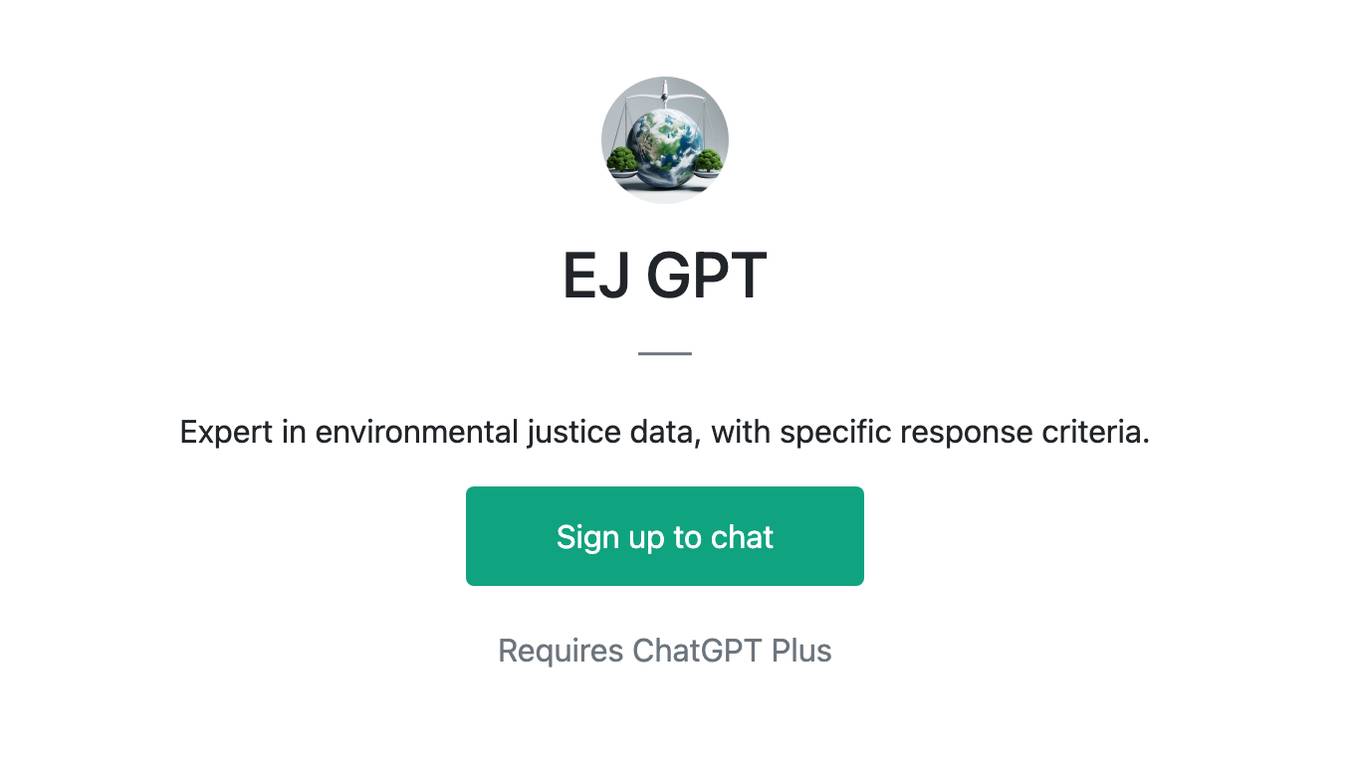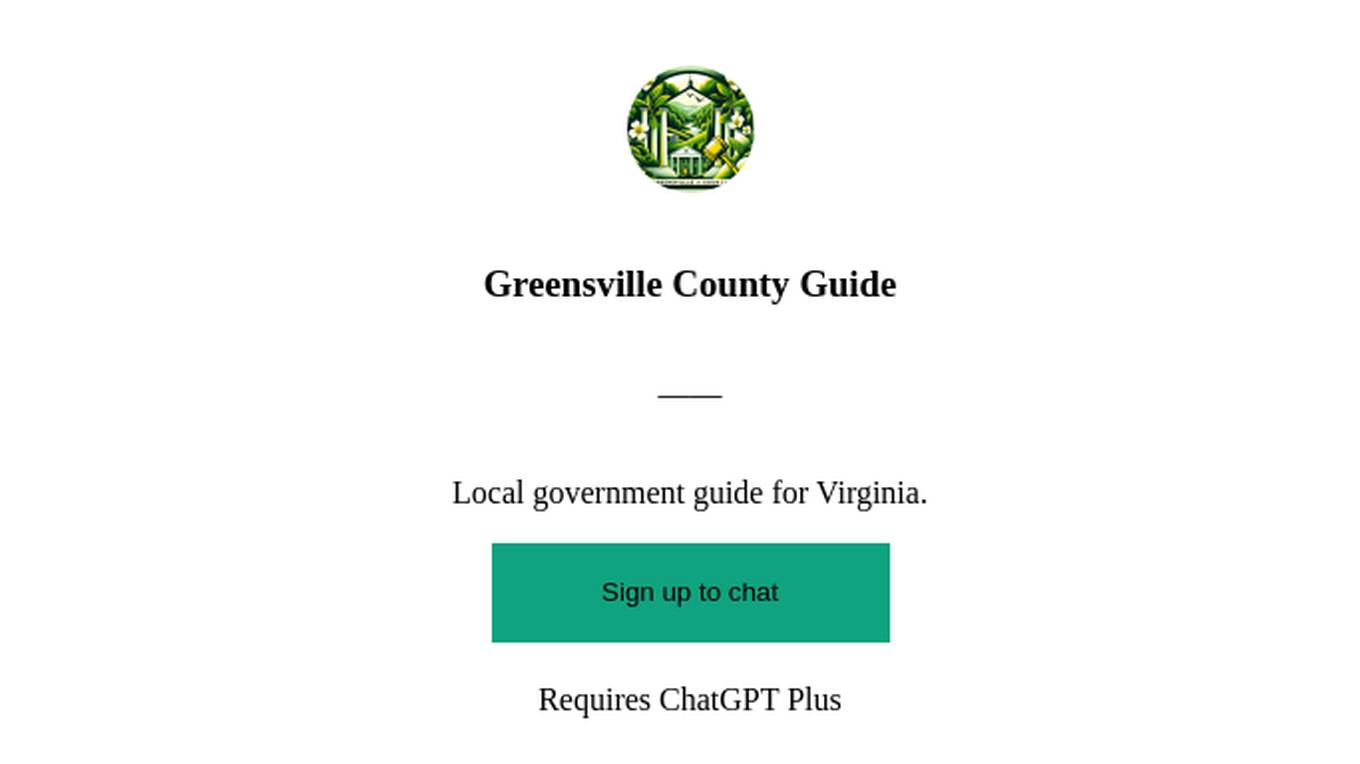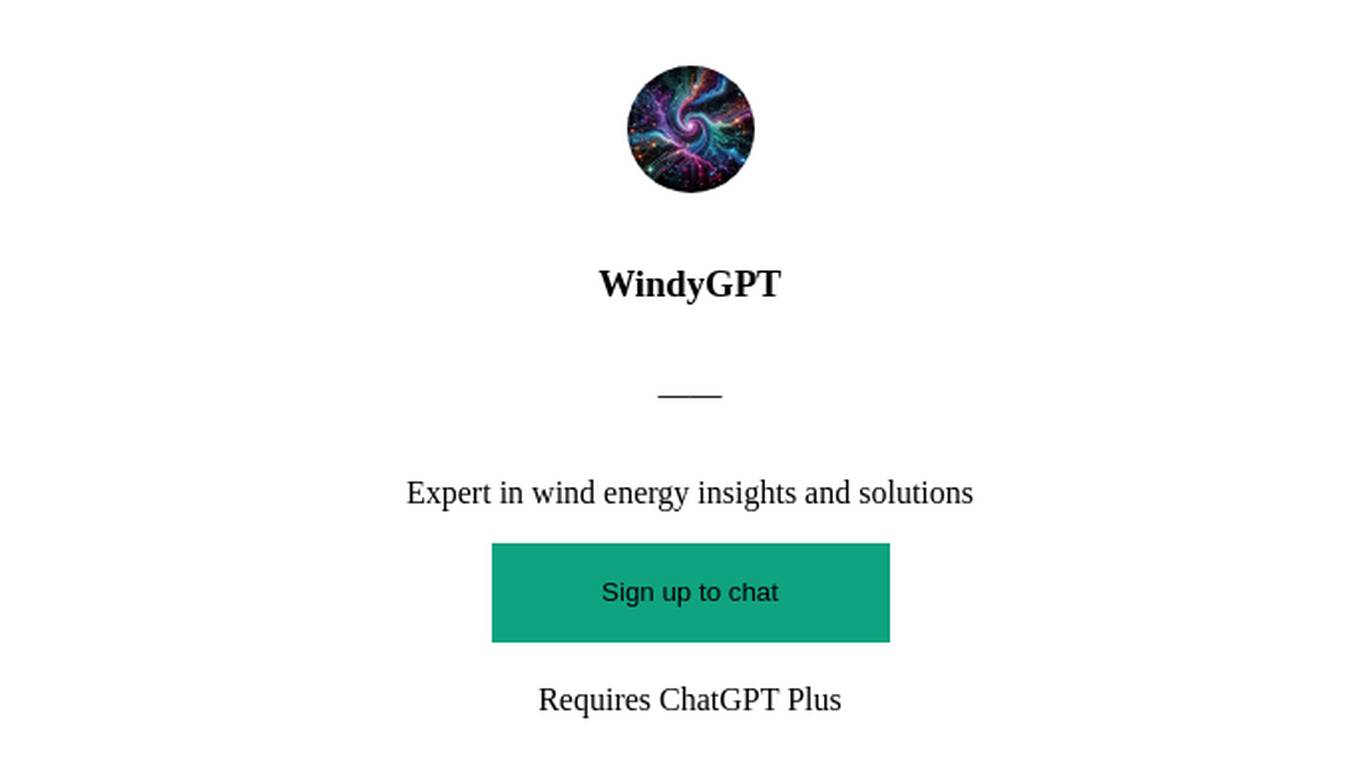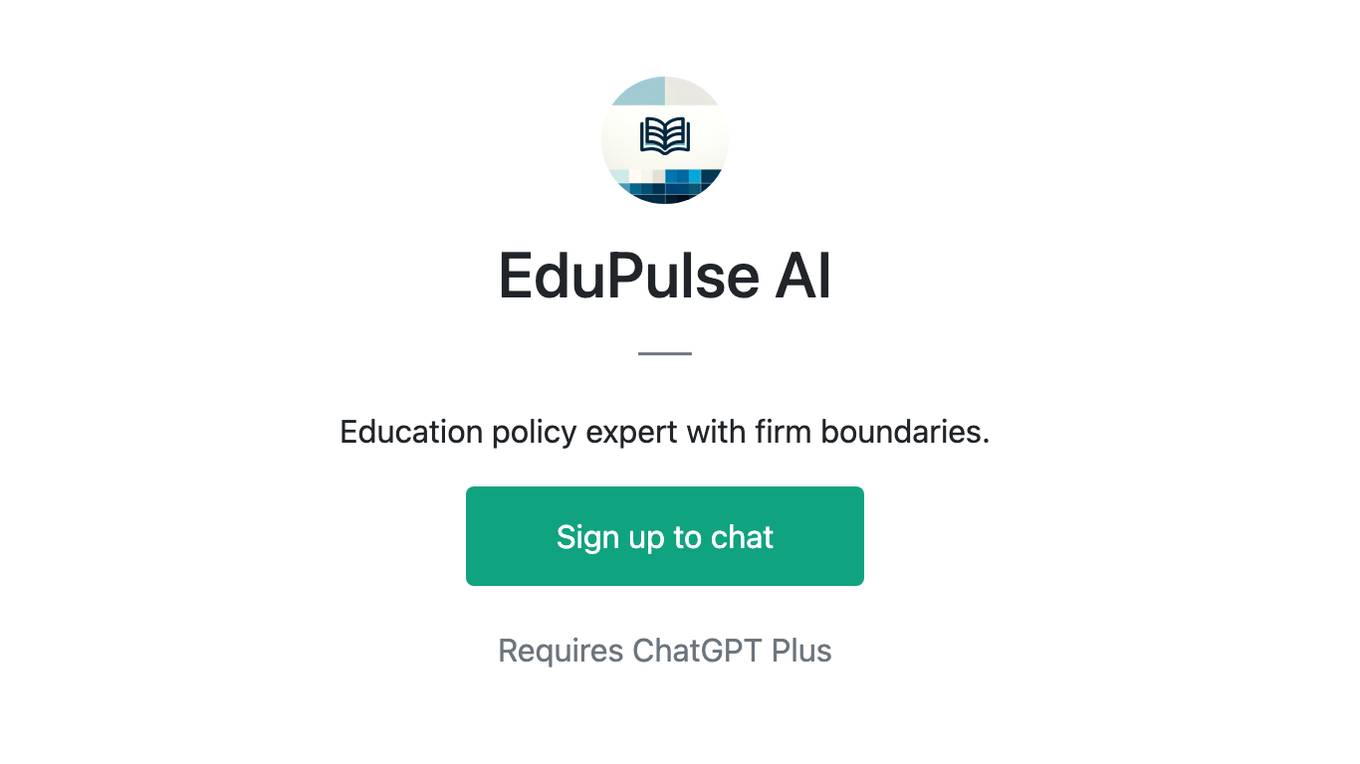Best AI tools for< Policy Researcher >
Infographic
20 - AI tool Sites
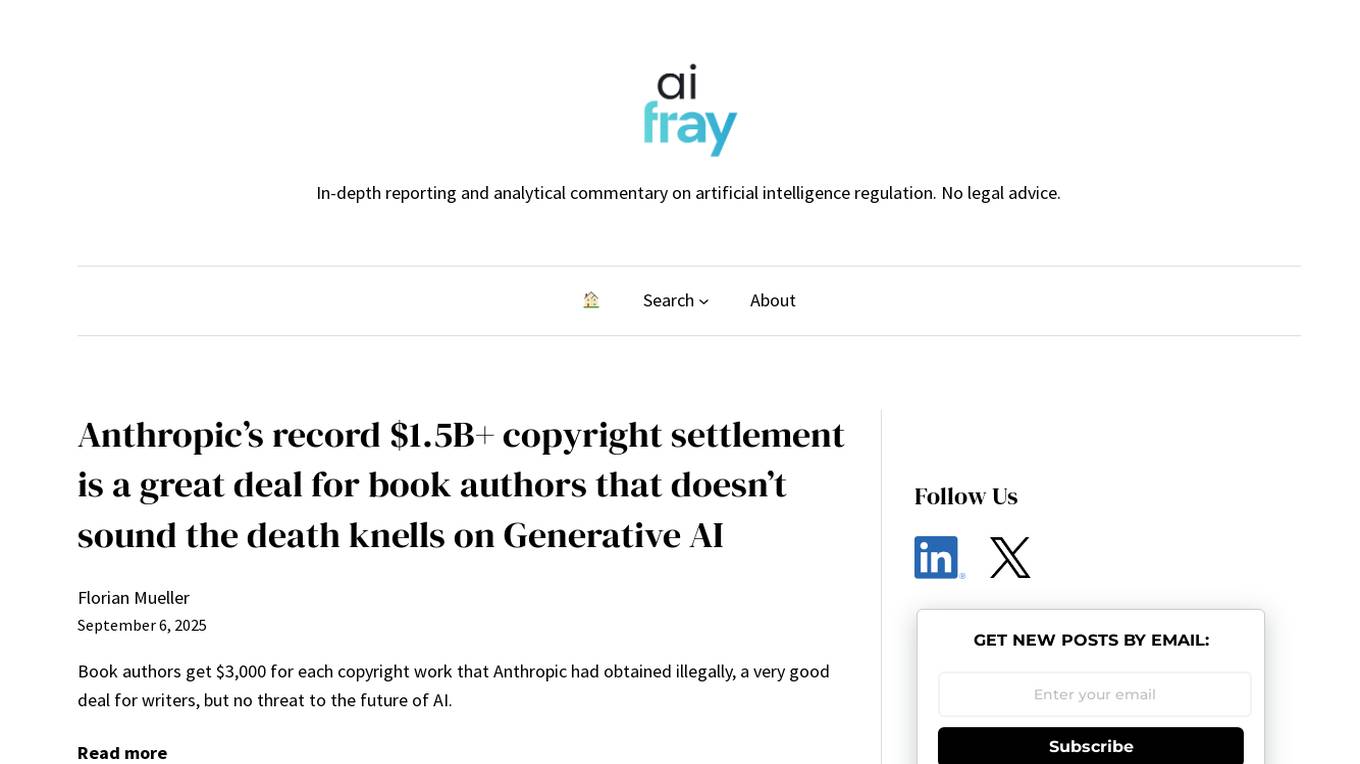
ai fray
ai fray is a website that provides in-depth reporting and analytical commentary on artificial intelligence regulation. The platform covers various legal cases and settlements related to AI copyright infringement, offering insights and updates on the legal landscape of AI technology. Users can stay informed about the latest developments in AI regulation and copyright issues through detailed articles and news reports.
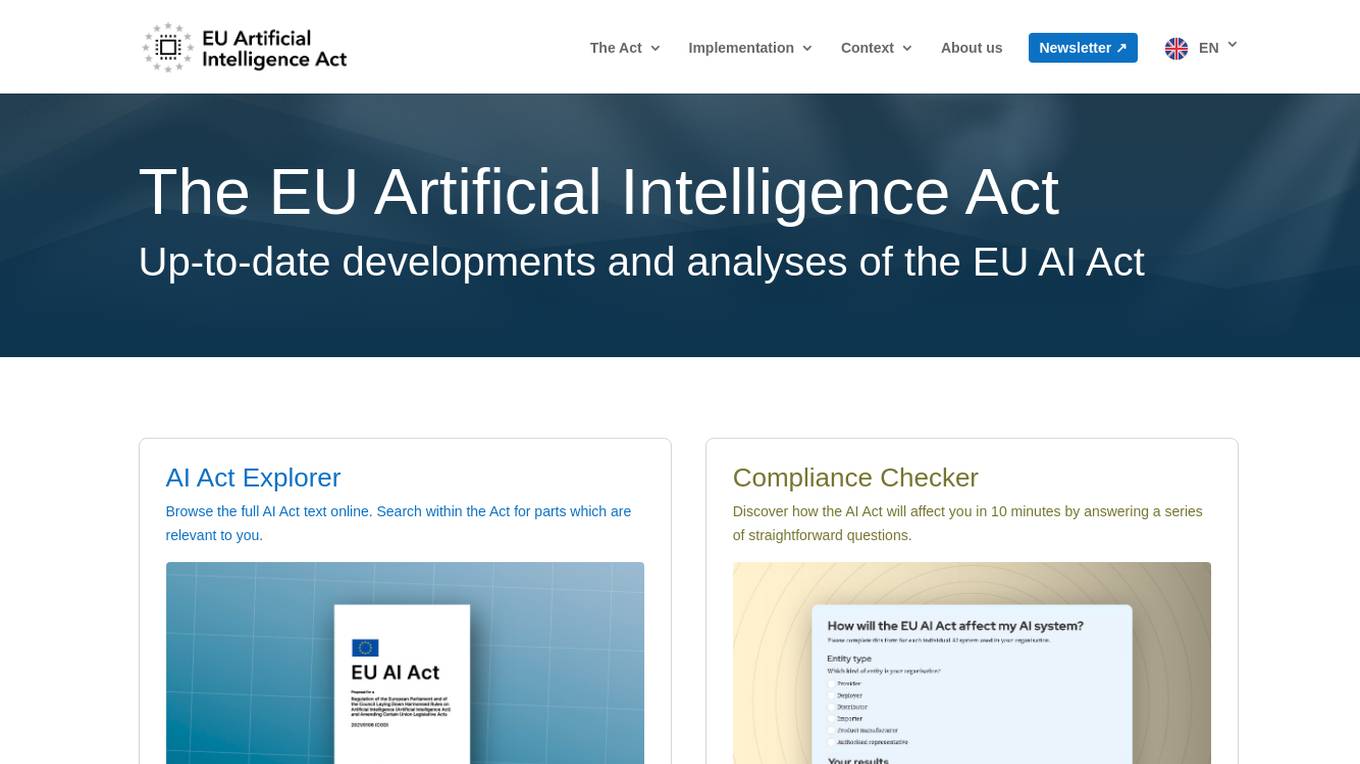
EU Artificial Intelligence Act
The EU Artificial Intelligence Act website provides up-to-date developments and analyses of the EU AI Act. It offers tools such as the AI Act Explorer to browse the full AI Act text online and the Compliance Checker to understand how the AI Act will impact users. The website aims to inform users about the European regulation on artificial intelligence, categorizing AI applications based on risk levels and legal requirements. It also highlights the importance of AI governance and its global implications.
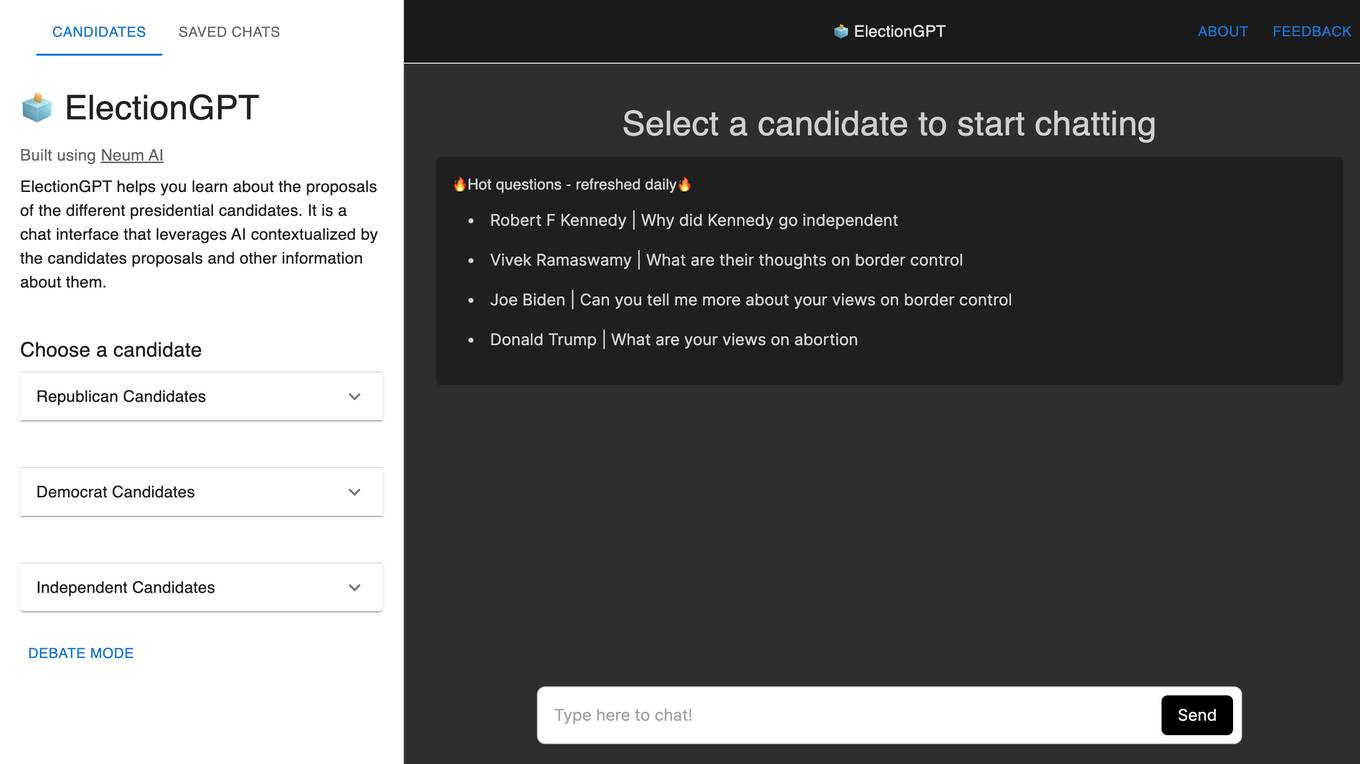
ElectionGPT
ElectionGPT is an AI-powered chatbot application that allows users to engage in simulated conversations with virtual representations of political candidates. Users can select a candidate and start chatting to ask questions or discuss various topics. The platform offers a unique and interactive way for users to learn about the views and opinions of different political figures. With a focus on providing insightful and engaging conversations, ElectionGPT aims to enhance user understanding of political issues and candidates.
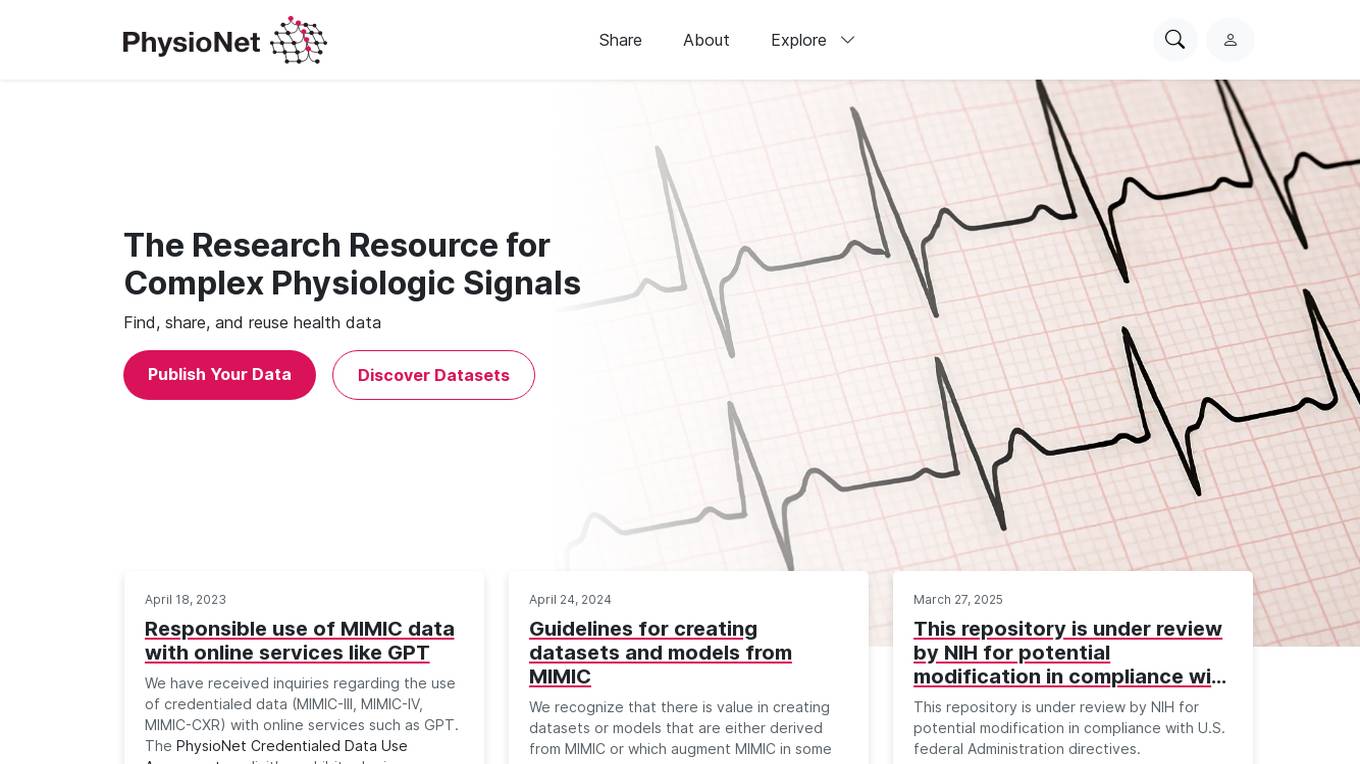
PhysioNet
PhysioNet is a research resource for complex physiologic signals that facilitates finding, sharing, and reusing health data. It provides access to various datasets and software tools for researchers in the medical field. PhysioNet aims to support the responsible use of data, including guidelines for creating datasets and models from sources like MIMIC. The platform also addresses access restrictions under the DOJ Data Security Program, ensuring compliance with legal obligations while supporting researchers in understanding and navigating policy changes.
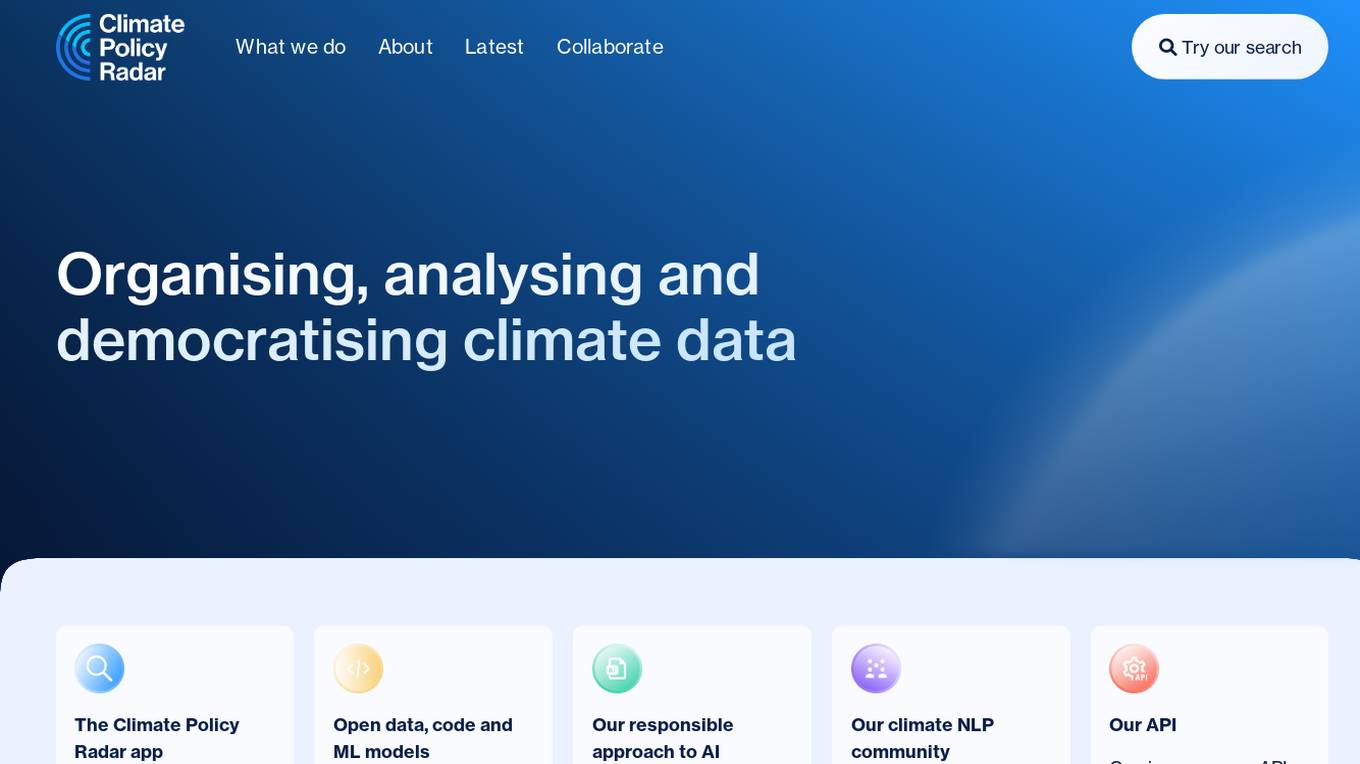
Climate Policy Radar
Climate Policy Radar is an AI-powered application that serves as a live, searchable database containing over 5,000 national climate laws, policies, and UN submissions. The app aims to organize, analyze, and democratize climate data by providing open data, code, and machine learning models. It promotes a responsible approach to AI, fosters a climate NLP community, and offers an API for organizations to utilize the data. The tool addresses the challenge of sparse and siloed climate-related information, empowering decision-makers with evidence-based policies to accelerate climate action.
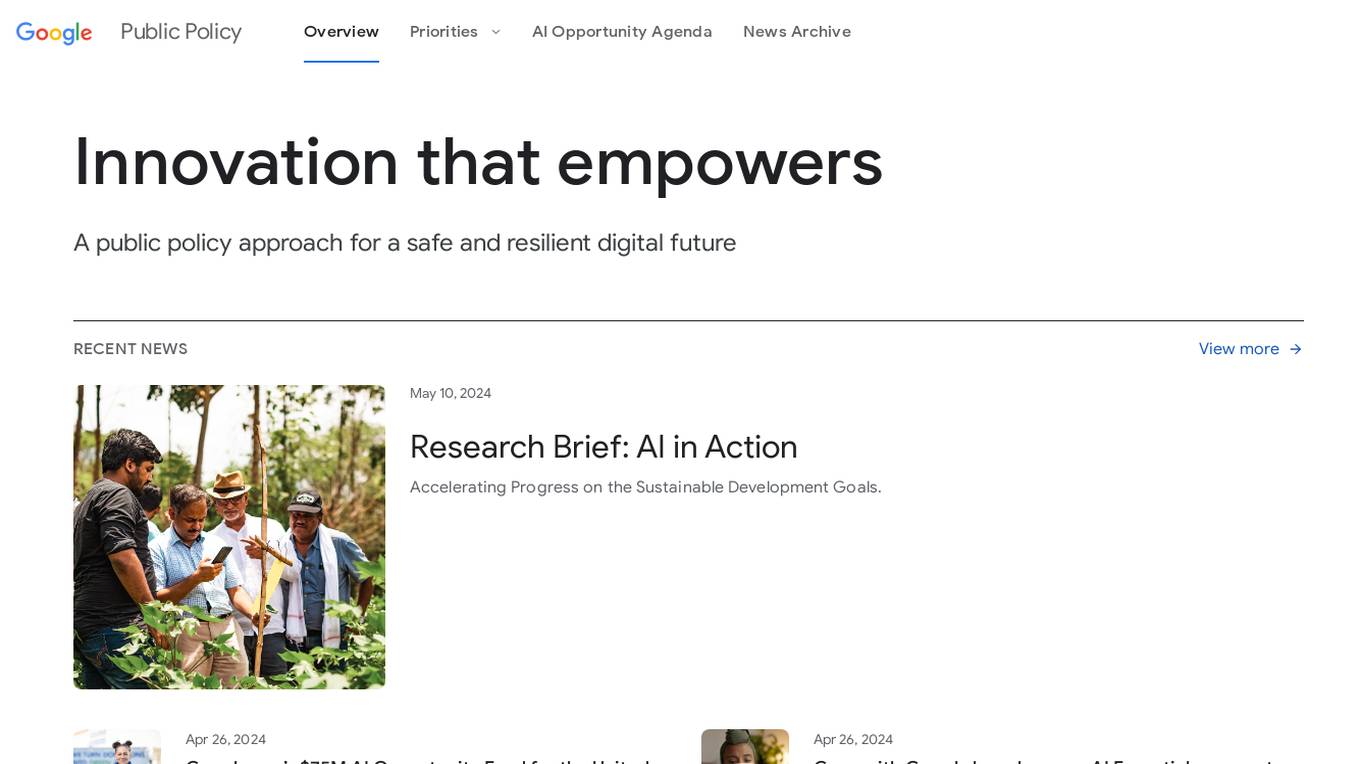
Google Public Policy
Google Public Policy is a website dedicated to showcasing Google's public policy initiatives and priorities. It provides information on various topics such as consumer choice, economic opportunity, privacy, responsible AI, security, sustainability, and trustworthy information & content. The site highlights Google's efforts in advancing bold and responsible AI, strengthening security, and promoting a more sustainable future. It also features news updates, research briefs, and collaborations with organizations to address societal challenges through technology and innovation.
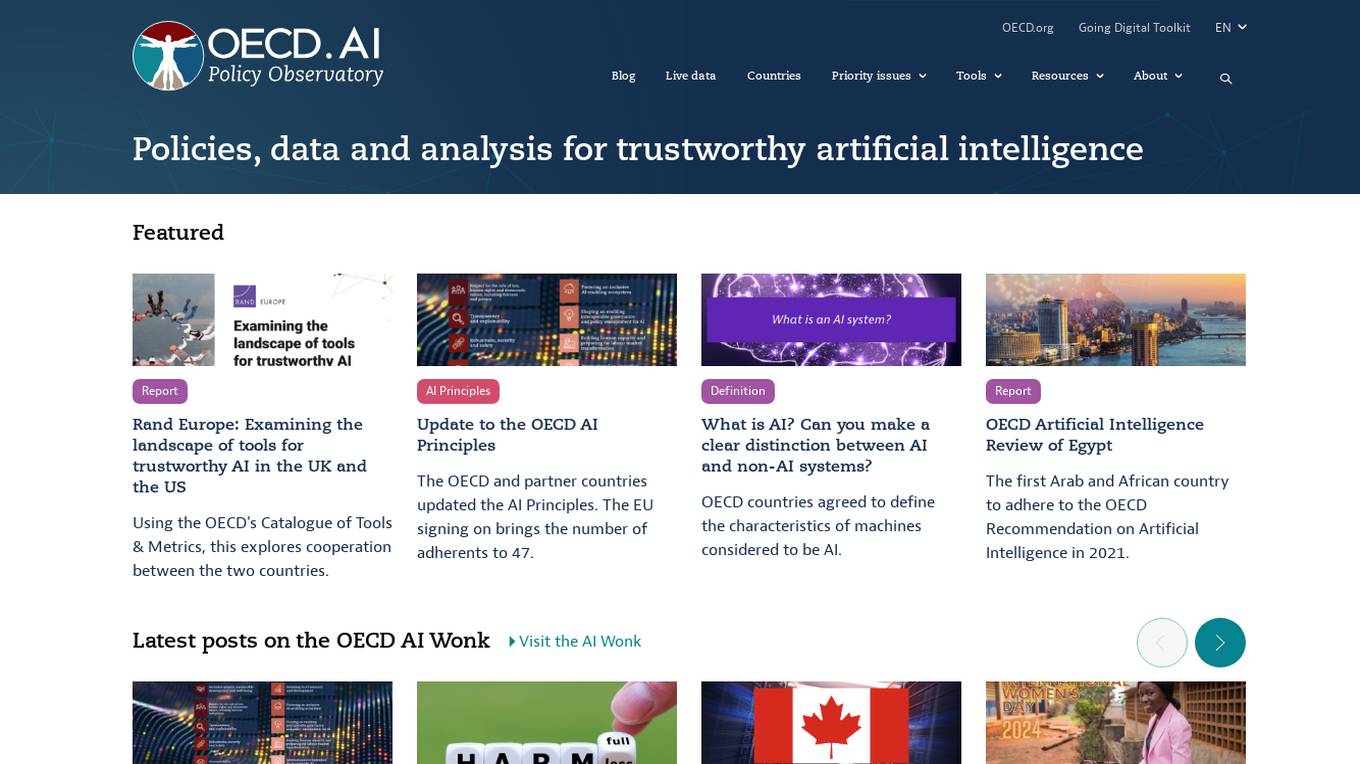
OECD.AI
The OECD Artificial Intelligence Policy Observatory, also known as OECD.AI, is a platform that focuses on AI policy issues, risks, and accountability. It provides resources, tools, and metrics to build and deploy trustworthy AI systems. The platform aims to promote innovative and trustworthy AI through collaboration with countries, stakeholders, experts, and partners. Users can access information on AI incidents, AI principles, policy areas, publications, and videos related to AI. OECD.AI emphasizes the importance of data privacy, generative AI management, AI computing capacities, and AI's potential futures.
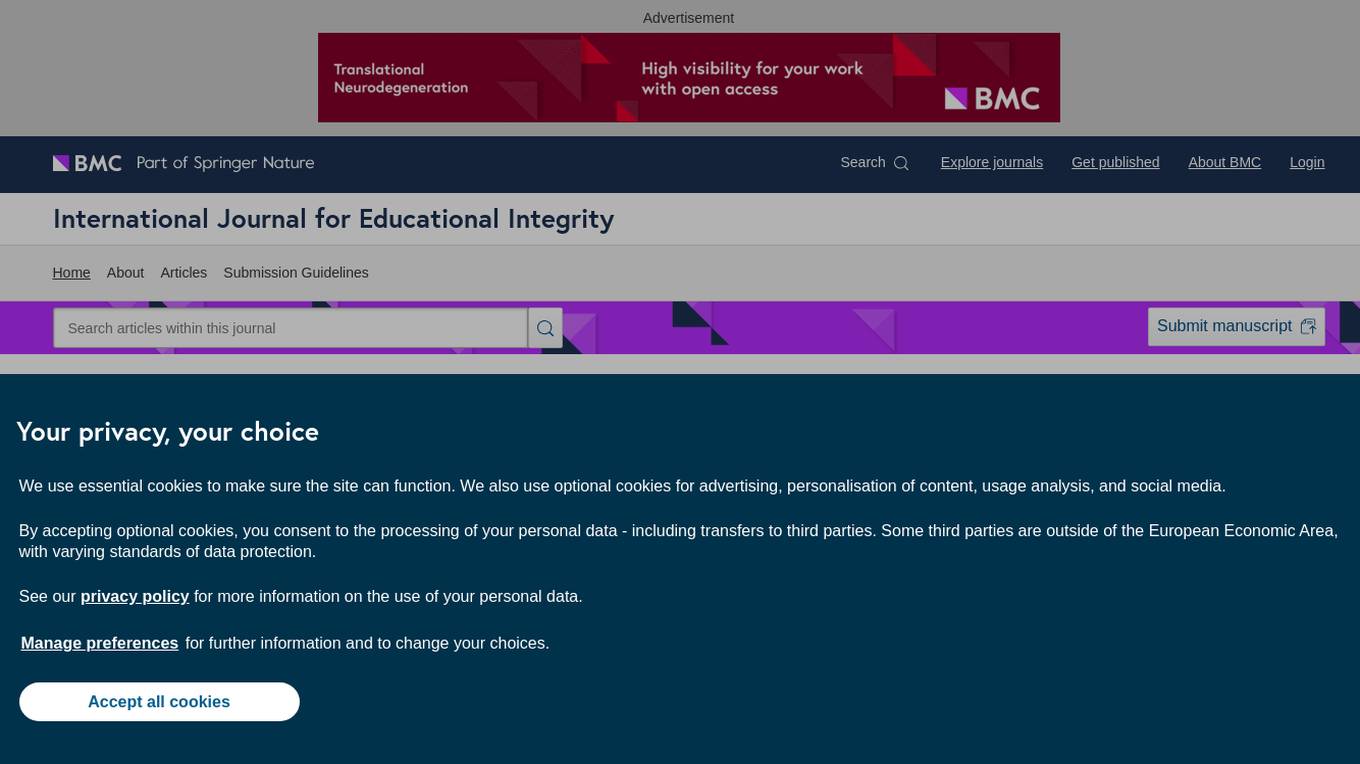
International Journal for Educational Integrity
The International Journal for Educational Integrity is an AI tool that focuses on publishing articles related to academic integrity, ethics, and plagiarism. It features original research articles, reviews, and thematic collections on topics such as machine-based plagiarism, contract cheating, and the impact of emergencies on educational integrity. The journal aims to address emerging threats to academic integrity and promote ethical practices in education.
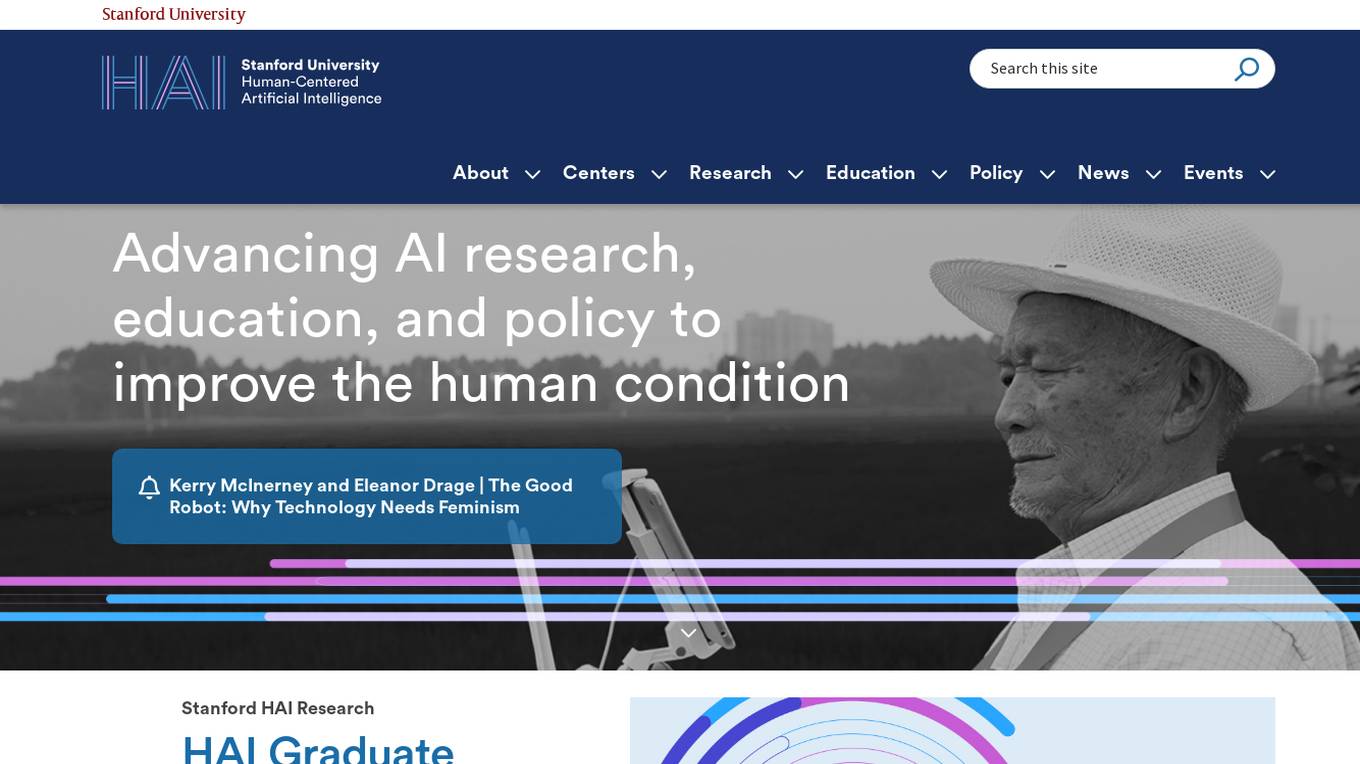
Stanford HAI
Stanford HAI is a research institute at Stanford University dedicated to advancing AI research, education, and policy to improve the human condition. The institute brings together researchers from a variety of disciplines to work on a wide range of AI-related projects, including developing new AI algorithms, studying the ethical and societal implications of AI, and creating educational programs to train the next generation of AI leaders. Stanford HAI is committed to developing human-centered AI technologies and applications that benefit all of humanity.
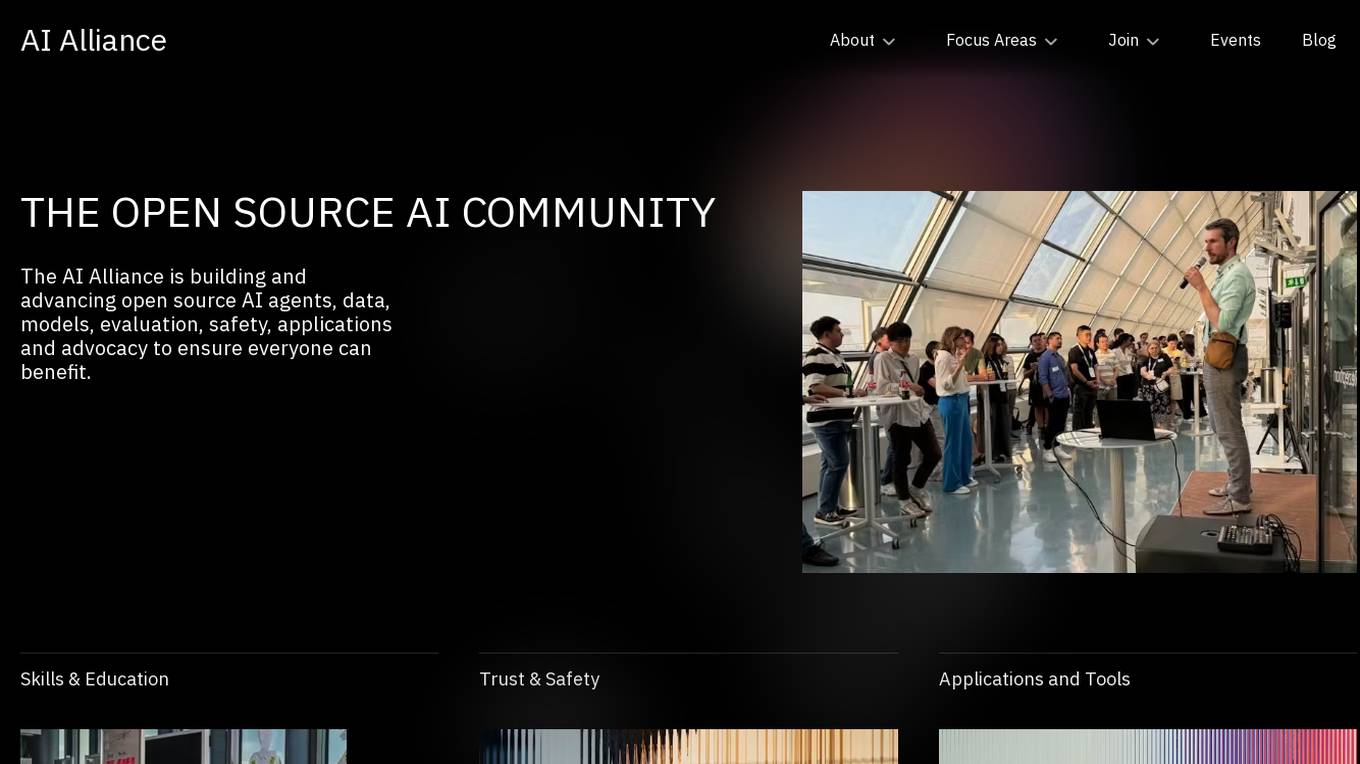
AI Alliance
The AI Alliance is a community dedicated to building and advancing open-source AI agents, data, models, evaluation, safety, applications, and advocacy to ensure everyone can benefit. They focus on various areas such as skills and education, trust and safety, applications and tools, hardware enablement, foundation models, and advocacy. The organization supports global AI skill-building, education, and exploratory research, creates benchmarks and tools for safe generative AI, builds capable tools for AI model builders and developers, fosters AI hardware accelerator ecosystem, enables open foundation models and datasets, and advocates for regulatory policies for healthy AI ecosystems.
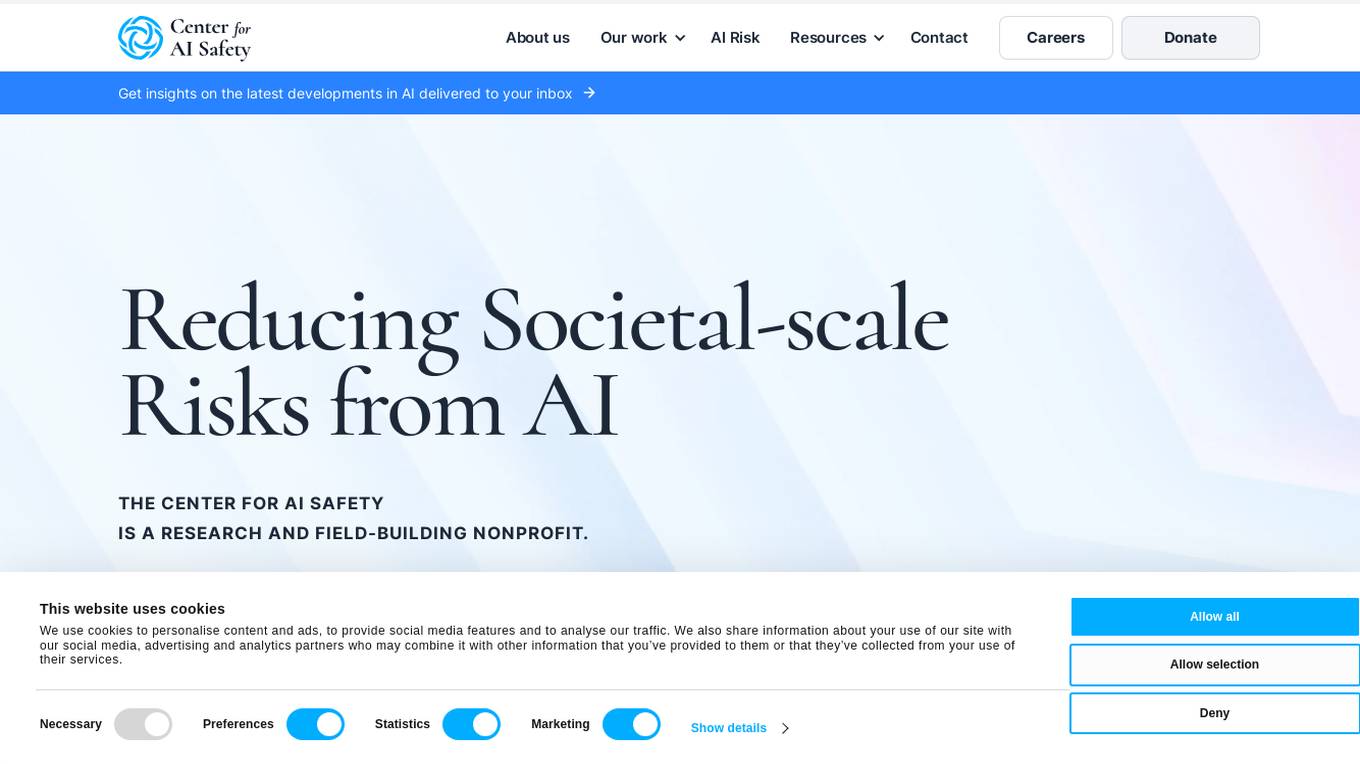
Center for AI Safety (CAIS)
The Center for AI Safety (CAIS) is a research and field-building nonprofit organization based in San Francisco. They conduct impactful research, advocacy projects, and provide resources to reduce societal-scale risks associated with artificial intelligence (AI). CAIS focuses on technical AI safety research, field-building projects, and offers a compute cluster for AI/ML safety projects. They aim to develop and use AI safely to benefit society, addressing inherent risks and advocating for safety standards.
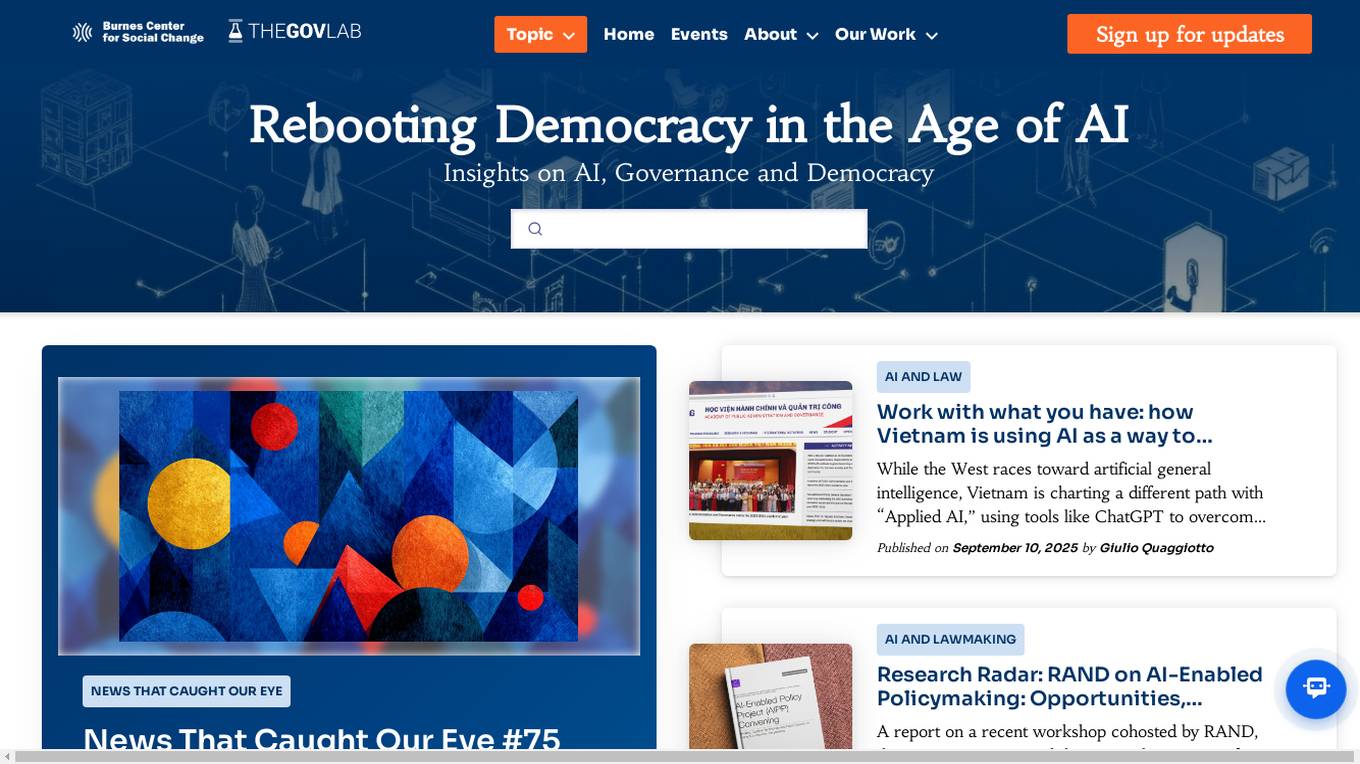
Reboot Democracy
Reboot Democracy is an AI application focused on participatory democracy, governance, and public engagement. The platform offers insights, news, and workshops on how AI can enhance government processes and citizen participation. Through case studies, reports, and practical sessions, Reboot Democracy aims to promote AI literacy among public servants and encourage a culture of curiosity, collaboration, and transformation in the public sector.
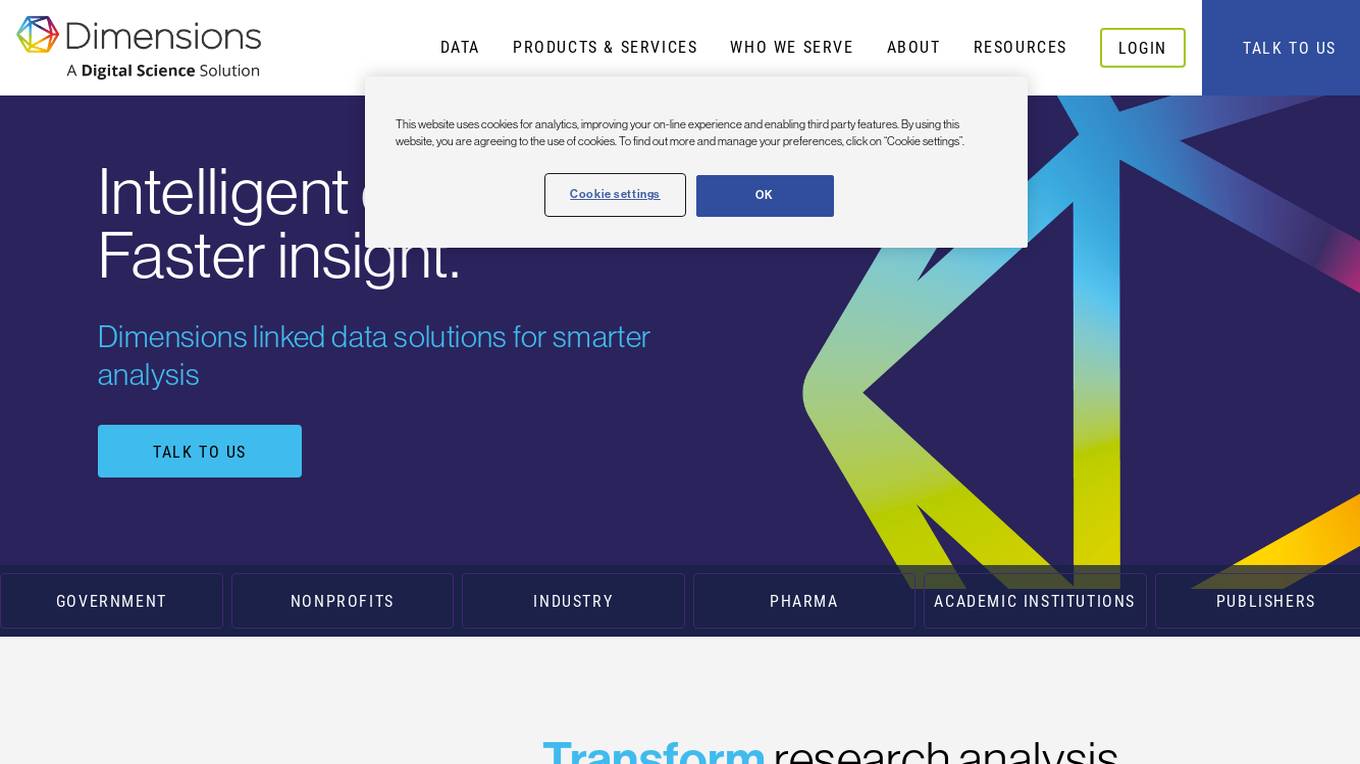
Dimensions AI
Dimensions AI is an advanced scientific research database that provides a suite of research applications and time-saving solutions for intelligent discovery and faster insight. It hosts the largest collection of interconnected global research data, including publications, clinical trials, patents, policy documents, grants, datasets, and online citations. The platform offers easy-to-understand visualizations, purpose-built applications, and integrated AI technology to speed up research interpretation and analysis. Dimensions is designed to propel research by connecting the dots across the research ecosystem and saving researchers hours of time.
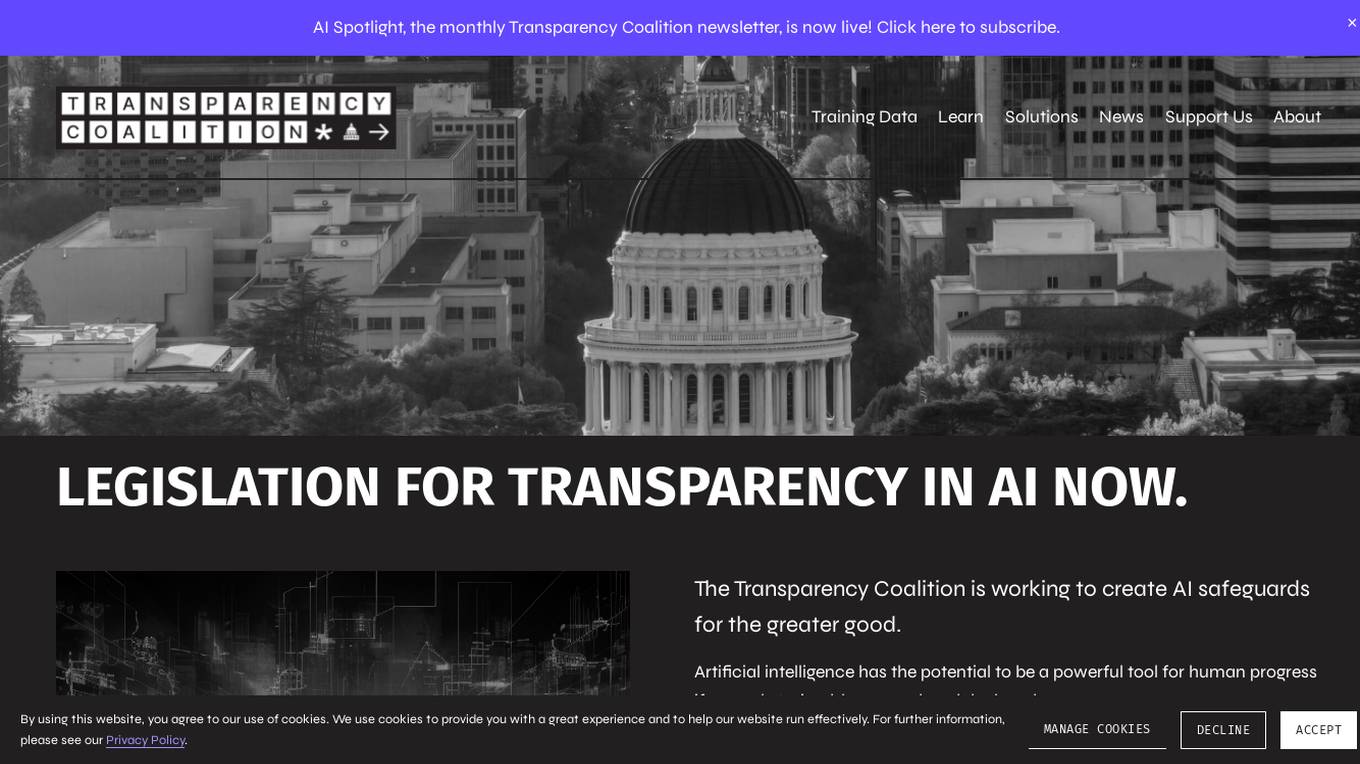
Transparency Coalition
The Transparency Coalition is a platform dedicated to advocating for legislation and transparency in the field of artificial intelligence. It aims to create AI safeguards for the greater good by focusing on training data, accountability, and ethical practices in AI development and deployment. The platform emphasizes the importance of regulating training data to prevent misuse and harm caused by AI systems. Through advocacy and education, the Transparency Coalition seeks to promote responsible AI innovation and protect personal privacy.
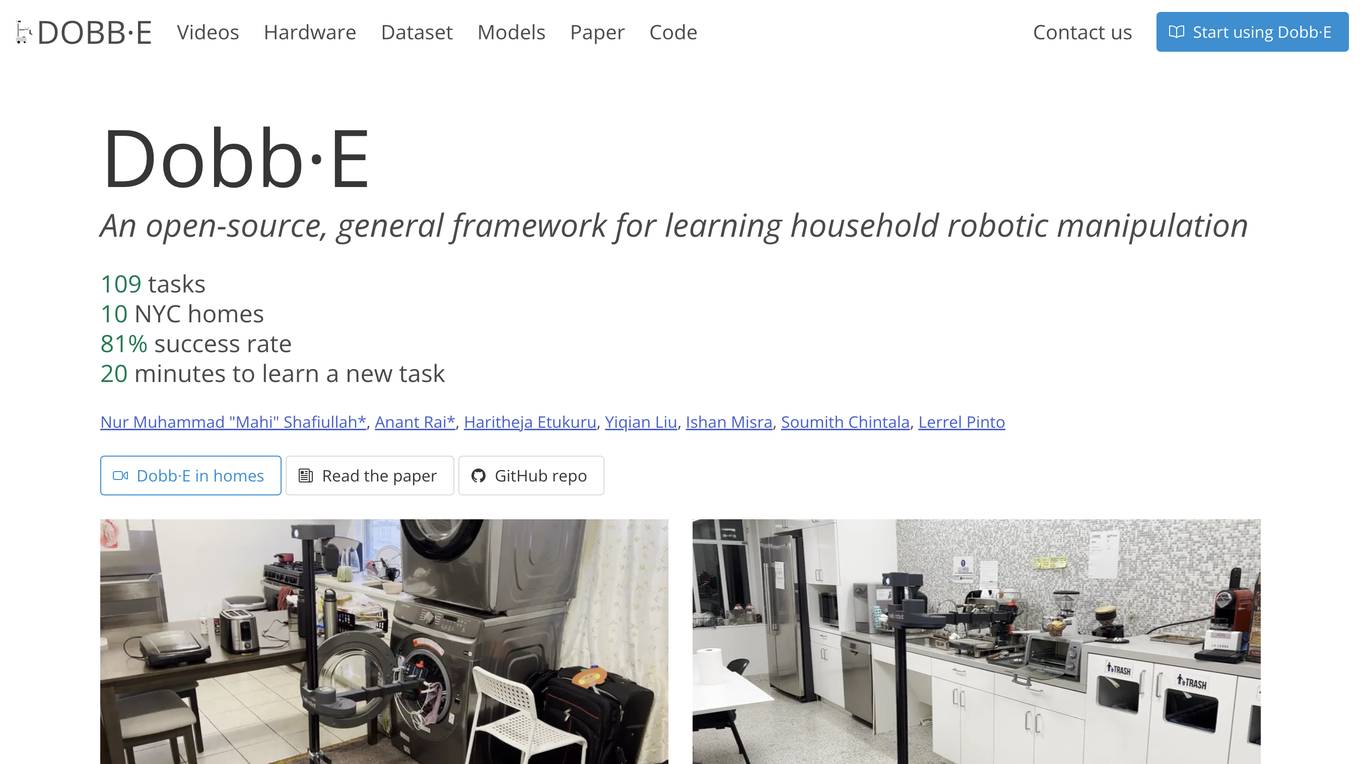
Dobb·E
Dobb·E is an open-source, general framework for learning household robotic manipulation. It aims to create a 'generalist machine' for homes, a domestic assistant that can adapt and learn various tasks cost-effectively. Dobb·E can learn a new task with just five minutes of demonstration, achieving an 81% success rate in 10 NYC homes. The system is designed to accelerate research on home robots and eventually enable robot butlers in every home.

LLM Council
LLM Council is an AI platform that combines multiple frontier Large Language Models to provide accurate, reliable, and unbiased answers through a structured 3-stage deliberation process with anonymous peer review. It offers reduced bias, higher accuracy, transparency, and collaborative intelligence in addressing complex questions across various domains.
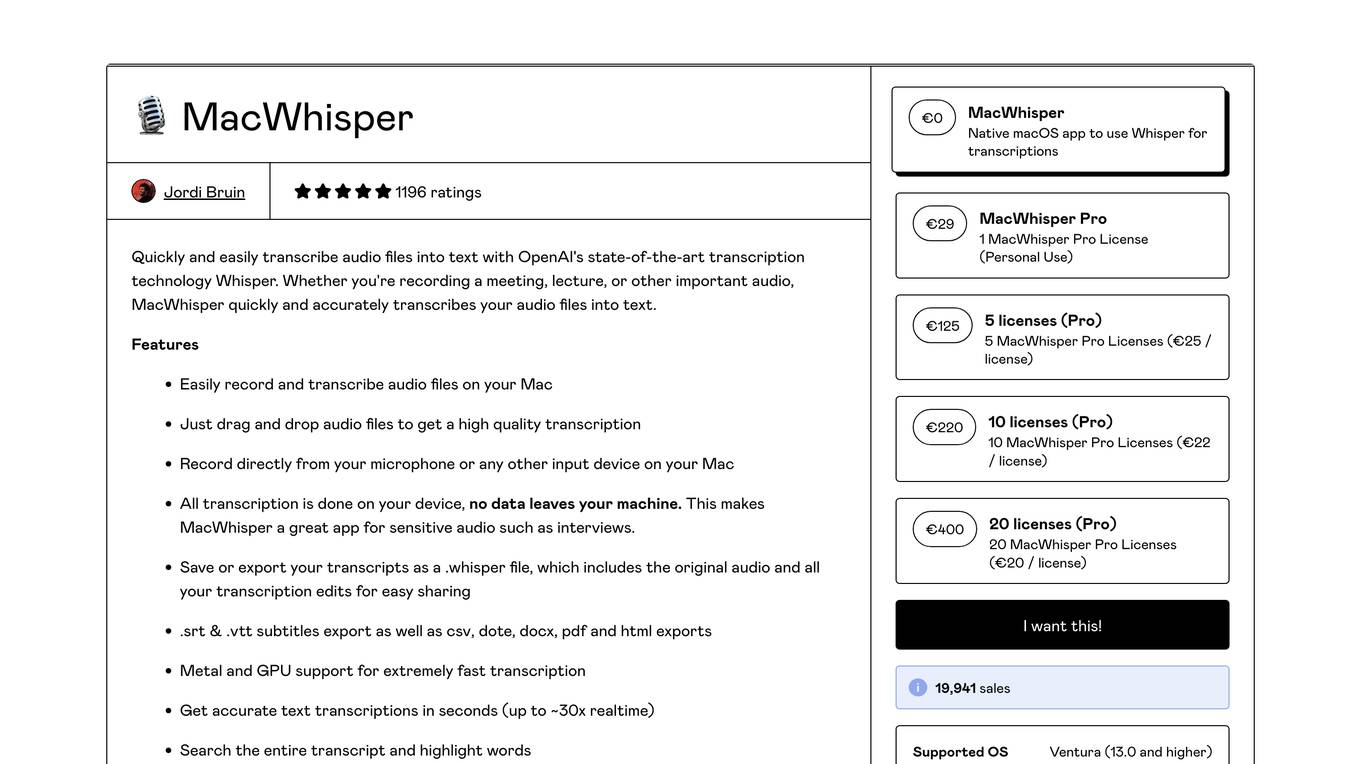
MacWhisper
MacWhisper is a native macOS application that utilizes OpenAI's Whisper technology for transcribing audio files into text. It offers a user-friendly interface for recording, transcribing, and editing audio, making it suitable for various use cases such as transcribing meetings, lectures, interviews, and podcasts. The application is designed to protect user privacy by performing all transcriptions locally on the device, ensuring that no data leaves the user's machine.

AI for Good
The website is a platform dedicated to AI for Good, focusing on advancing trustworthy AI for sustainable development. It provides information on AI events, skills, standards, governance, and initiatives related to AI for sustainable development. The platform aims to bring diverse voices together to harness AI's potential for inclusive and sustainable development worldwide.
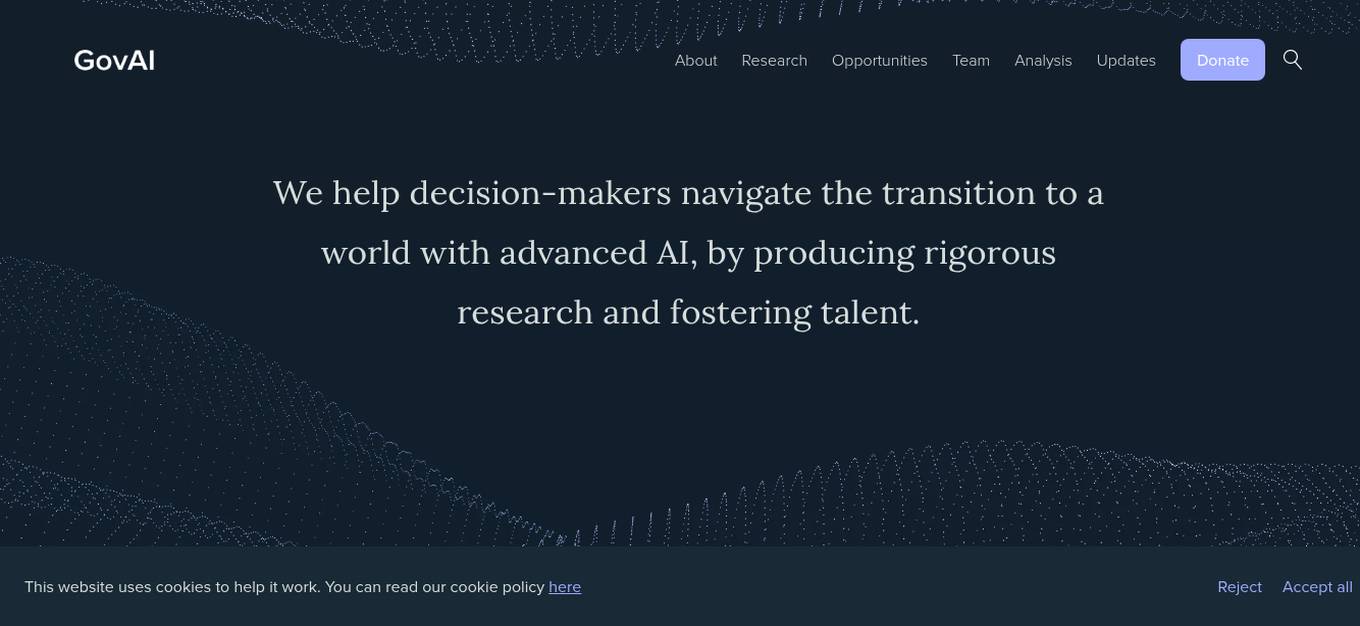
GovAI
GovAI is an AI tool designed to assist decision-makers in navigating the transition to a world with advanced AI. The tool produces rigorous research and fosters talent to address economic and national security imperatives related to AI dominance. It features analysis on various topics such as economics, export controls, public attitudes towards AI, AI governance trends, and the impact of AI on work. GovAI aims to provide insights and recommendations for policymakers and stakeholders in the AI domain.
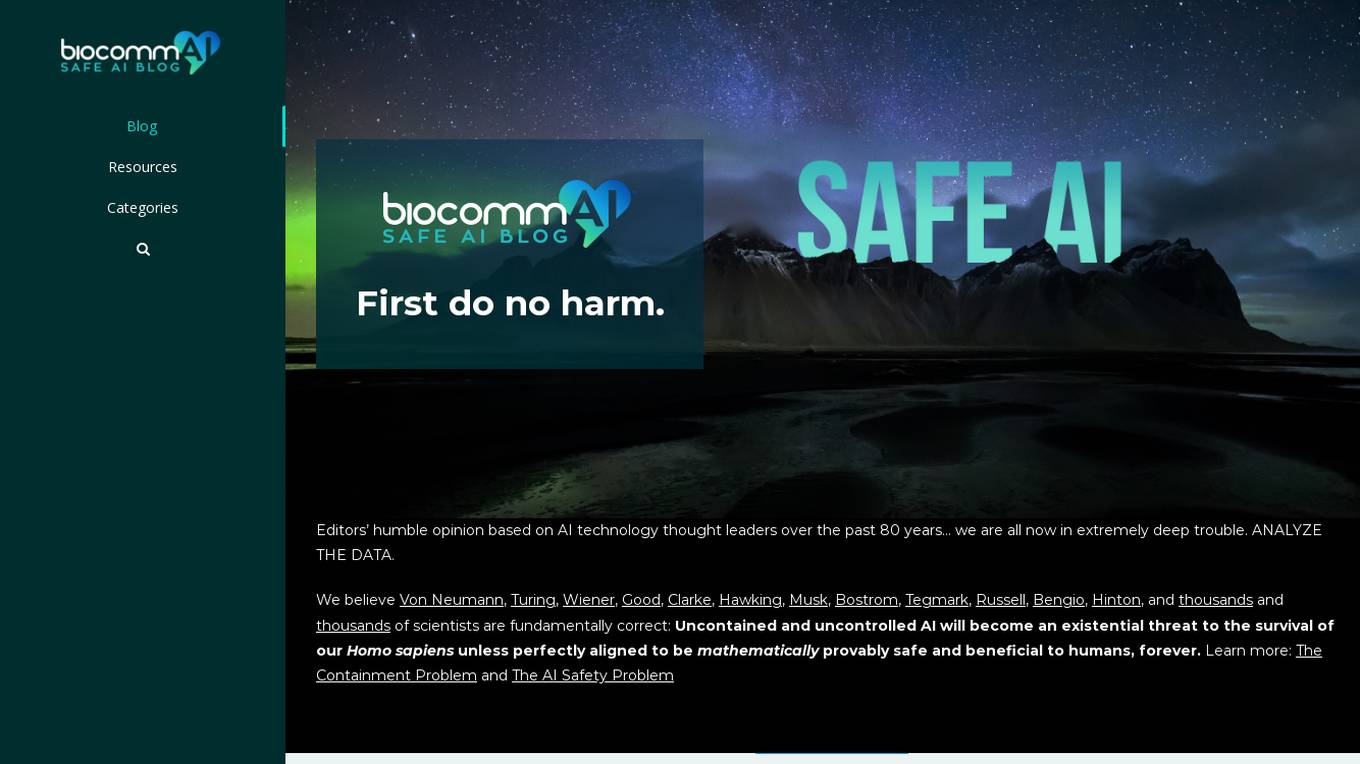
blog.biocomm.ai
blog.biocomm.ai is an AI safety blog that focuses on the existential threat posed by uncontrolled and uncontained AI technology. It curates and organizes information related to AI safety, including the risks and challenges associated with the proliferation of AI. The blog aims to educate and raise awareness about the importance of developing safe and regulated AI systems to ensure the survival of humanity.
0 - Open Source Tools
20 - OpenAI Gpts
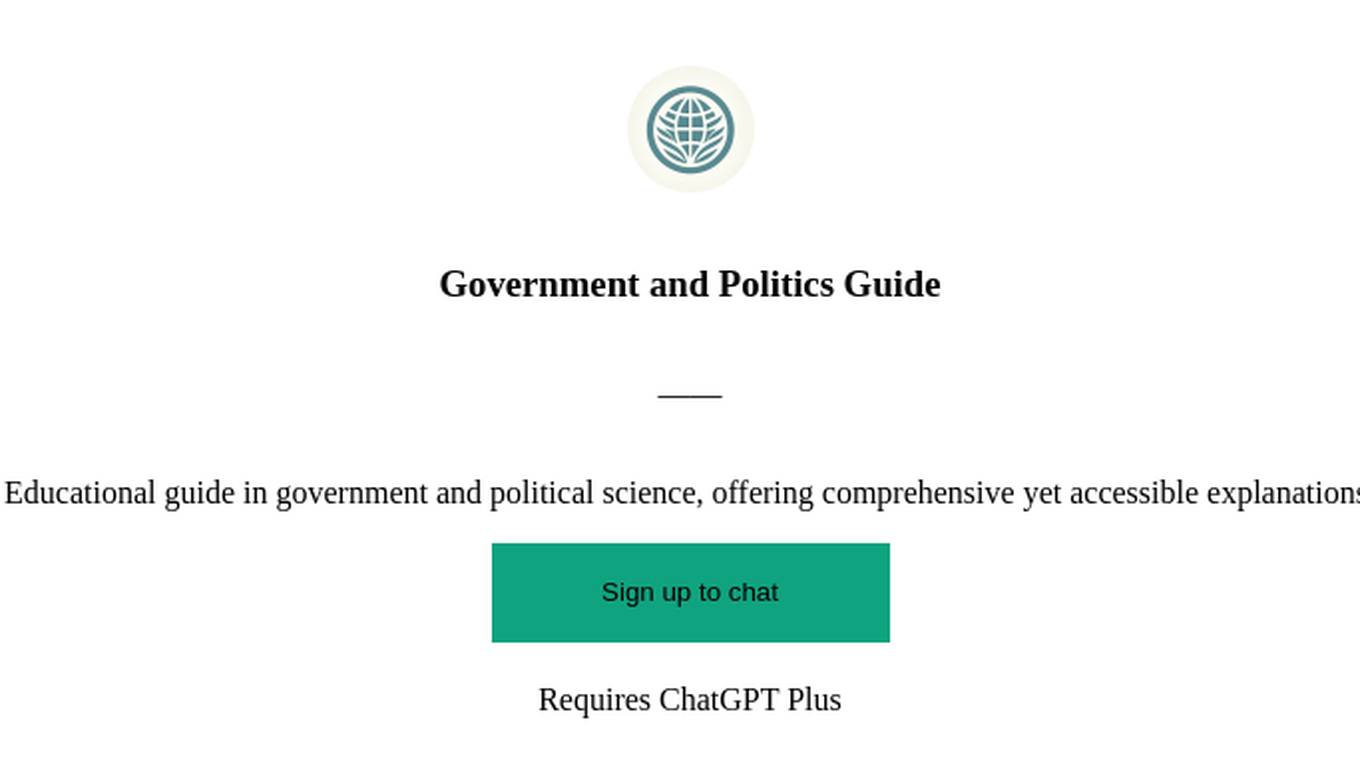
Government and Politics Guide
Educational guide in government and political science, offering comprehensive yet accessible explanations.
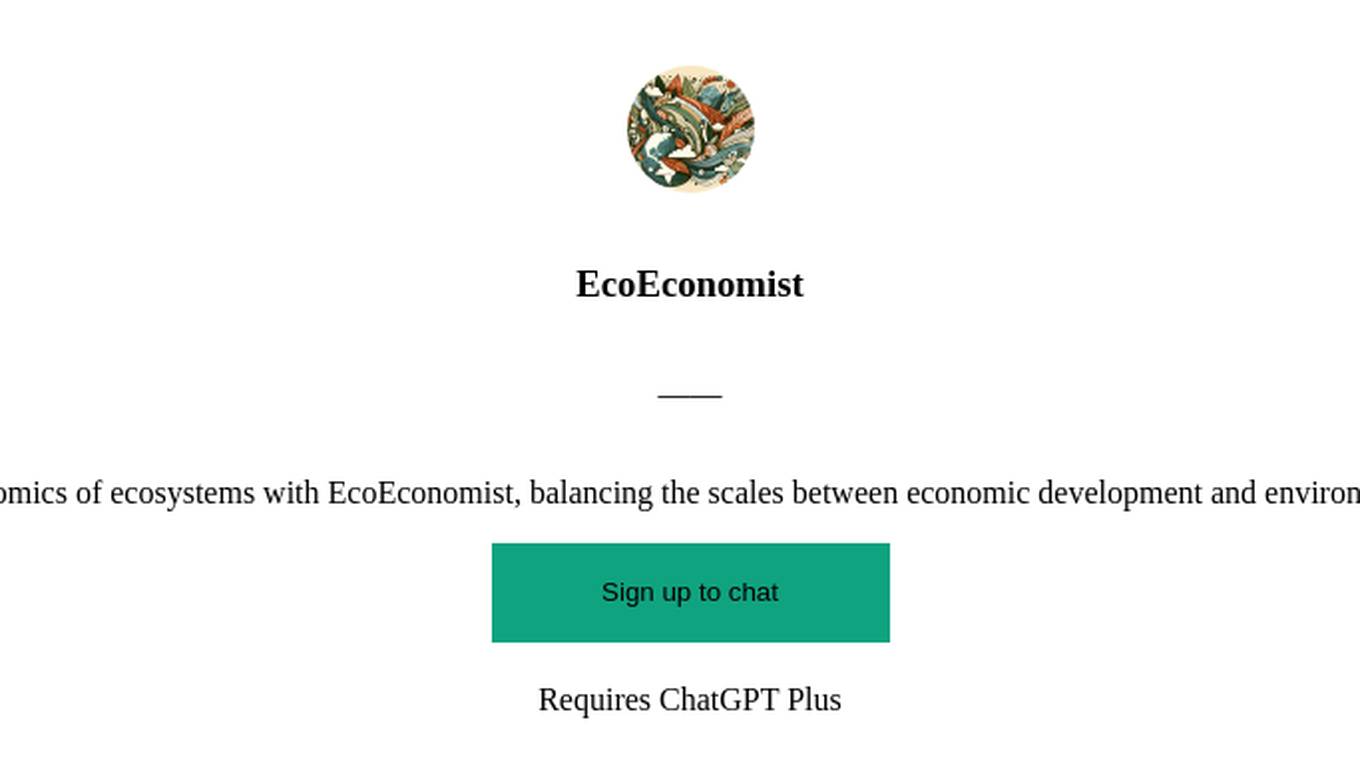
EcoEconomist
Embrace the economics of ecosystems with EcoEconomist, balancing the scales between economic development and environmental stewardship.

Financial Sentinel
An unyielding champion against predatory financial practices, adept at analyzing and exposing complex financial mechanisms, and relentless in advocating for consumer rights and transparency.
Government of Canada Departmental Expenditures AI
Search and analyze Government of Canada departmental expenditures and full time employees, by program. Connected to Government of Canada API.

Terms of Use & Privacy policy Assistant
OpenAIのTerms of UseとPrivacy policyを参照できます(2023年12月14日適用分)
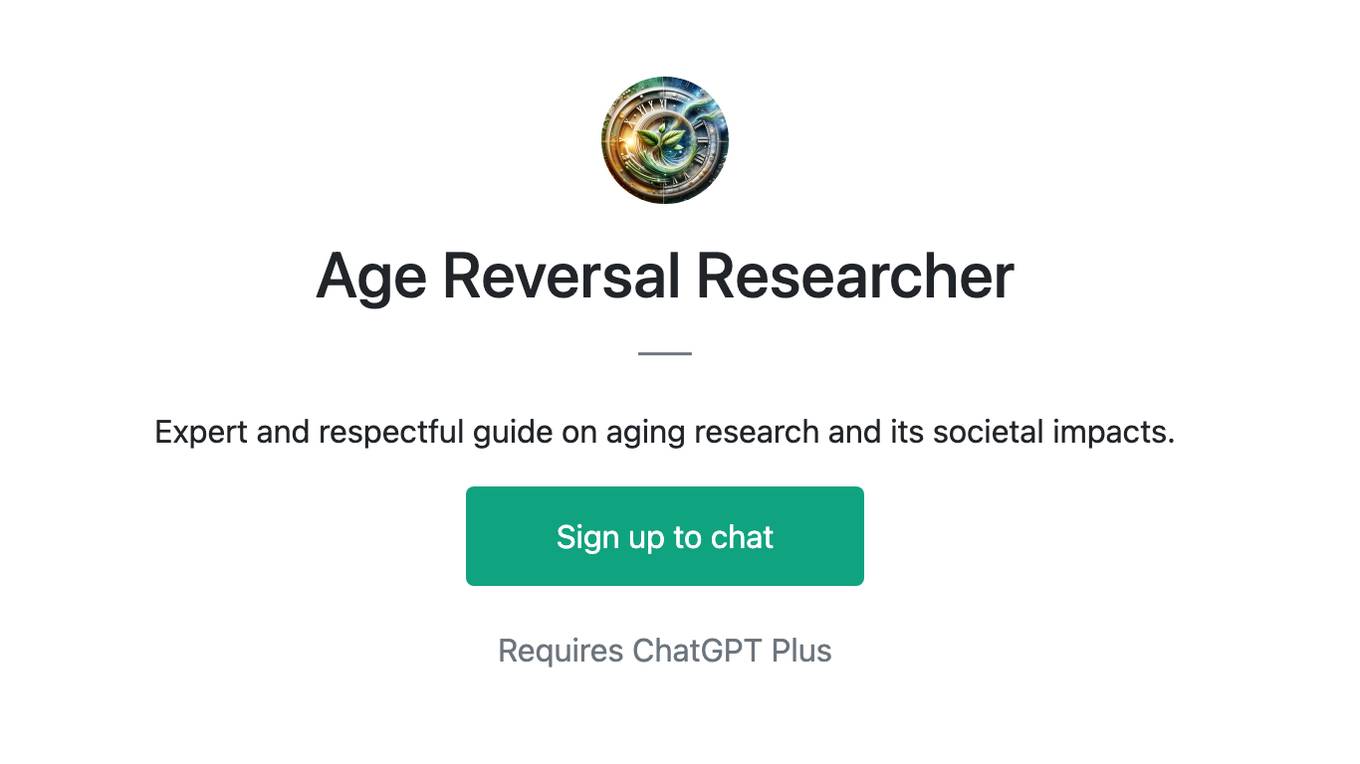
Age Reversal Researcher
Expert and respectful guide on aging research and its societal impacts.

Foreign Policy Expert
Expert on foreign policy and military interventions, tailored for high school students.
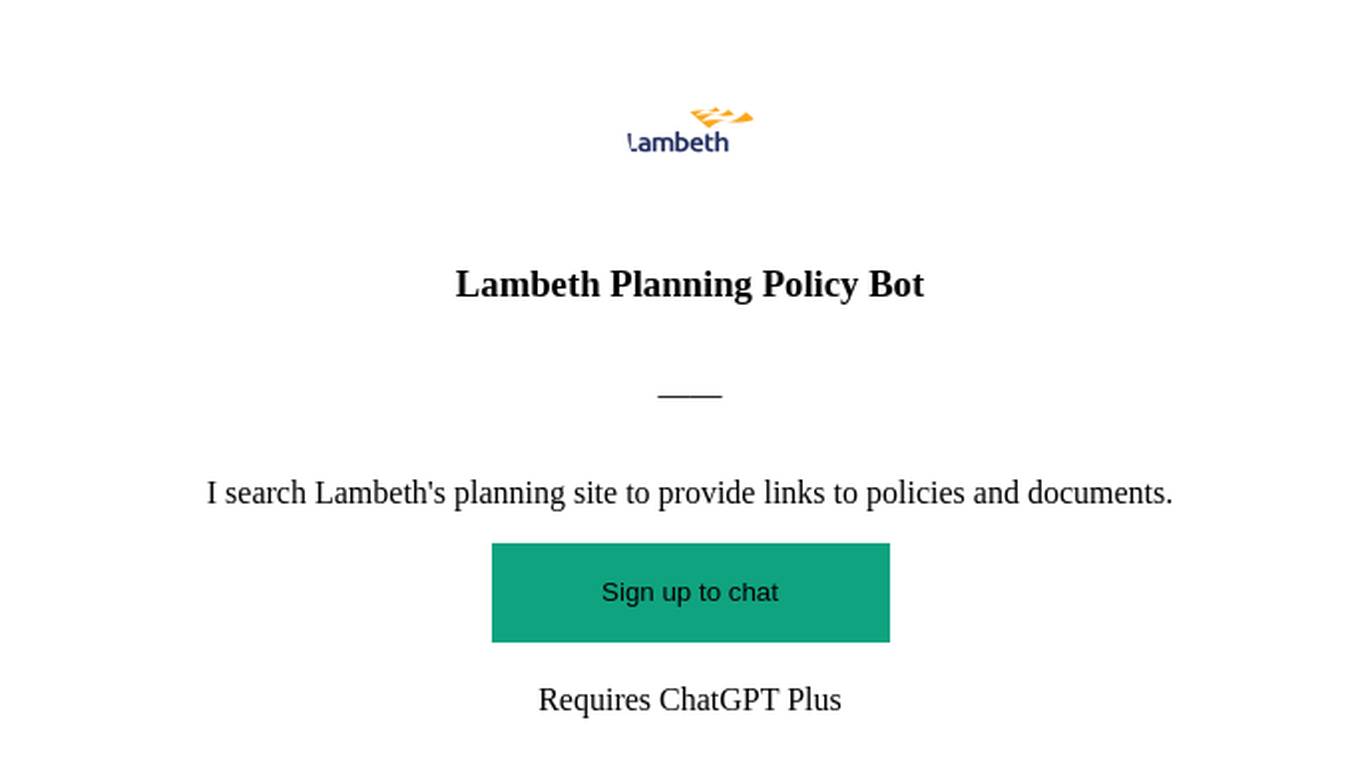
Lambeth Planning Policy Bot
I search Lambeth's planning site to provide links to policies and documents.
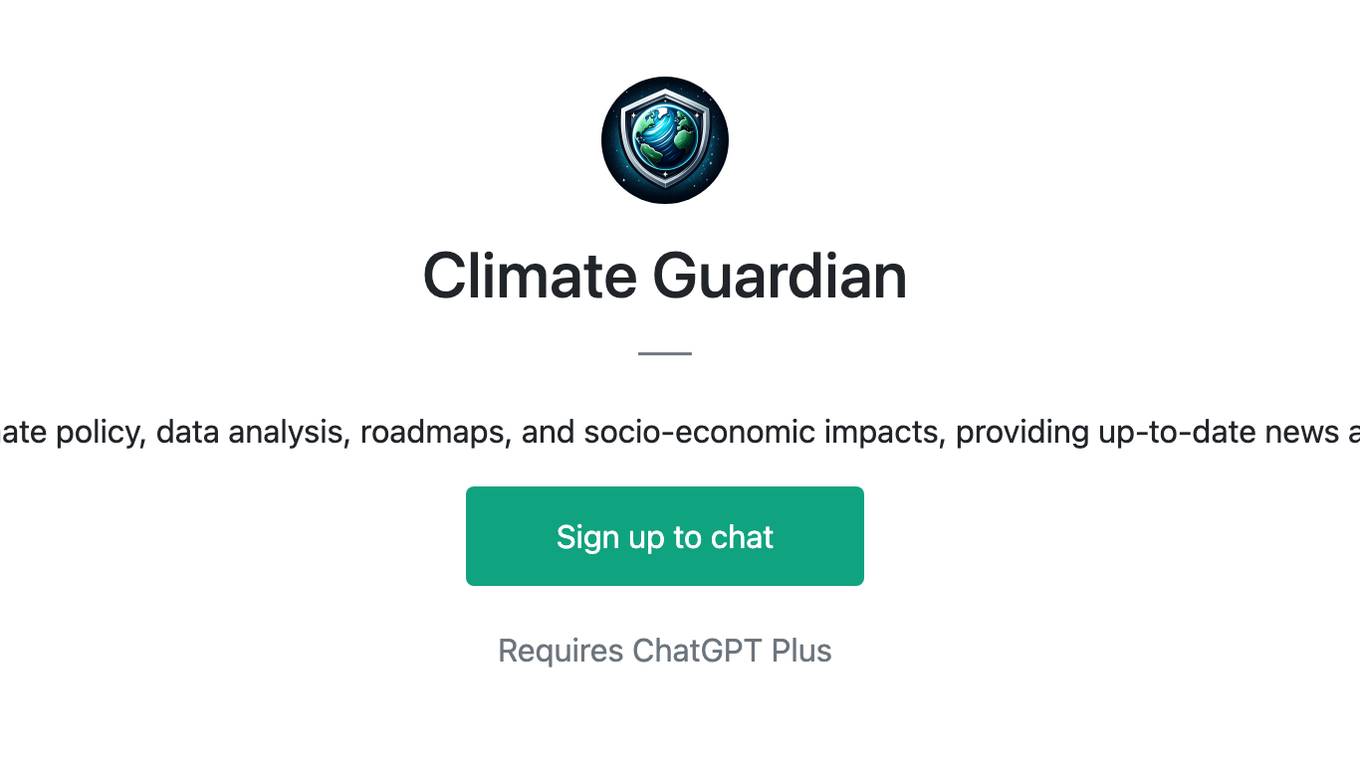
Climate Guardian
Expert in climate policy, data analysis, roadmaps, and socio-economic impacts, providing up-to-date news and insights

AI Cyberwar
AI and cyber warfare expert, advising on policy, conflict, and technical trends
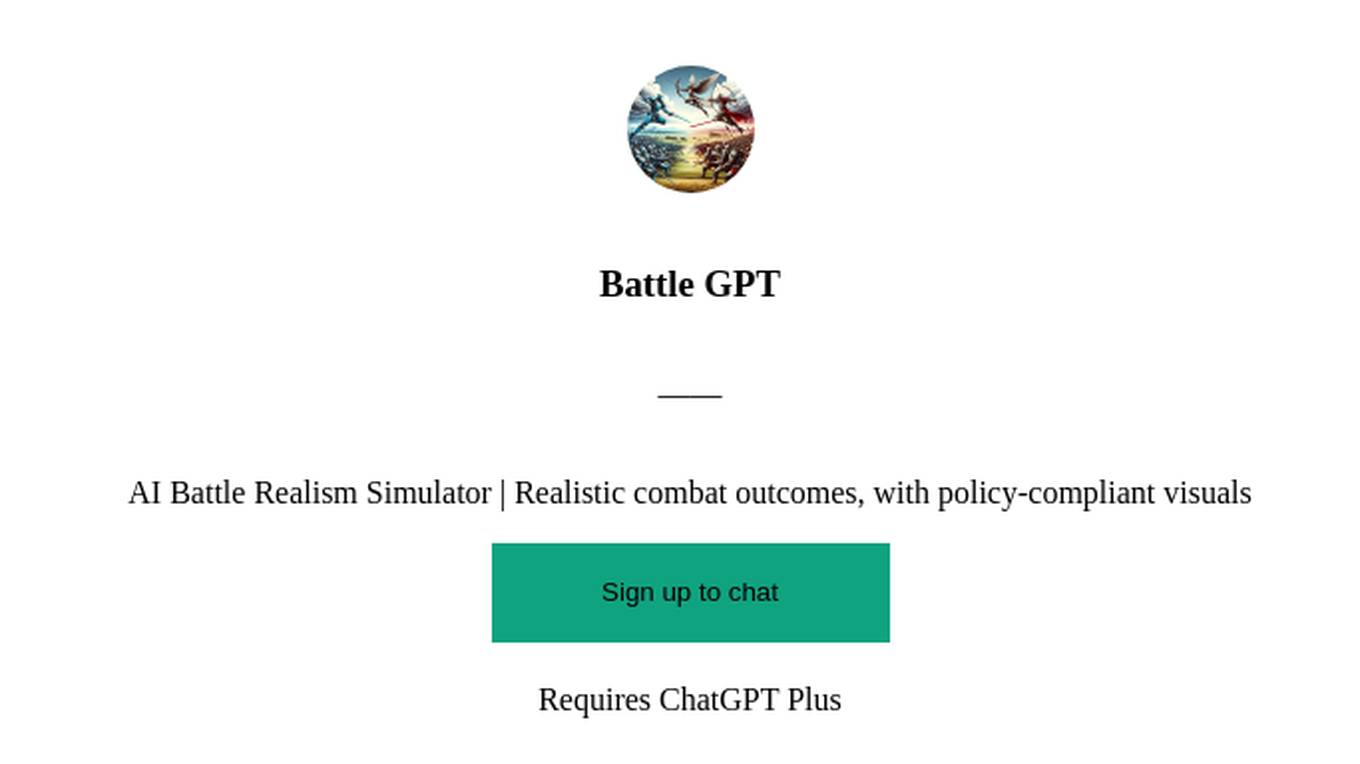
Battle GPT
AI Battle Realism Simulator | Realistic combat outcomes, with policy-compliant visuals
